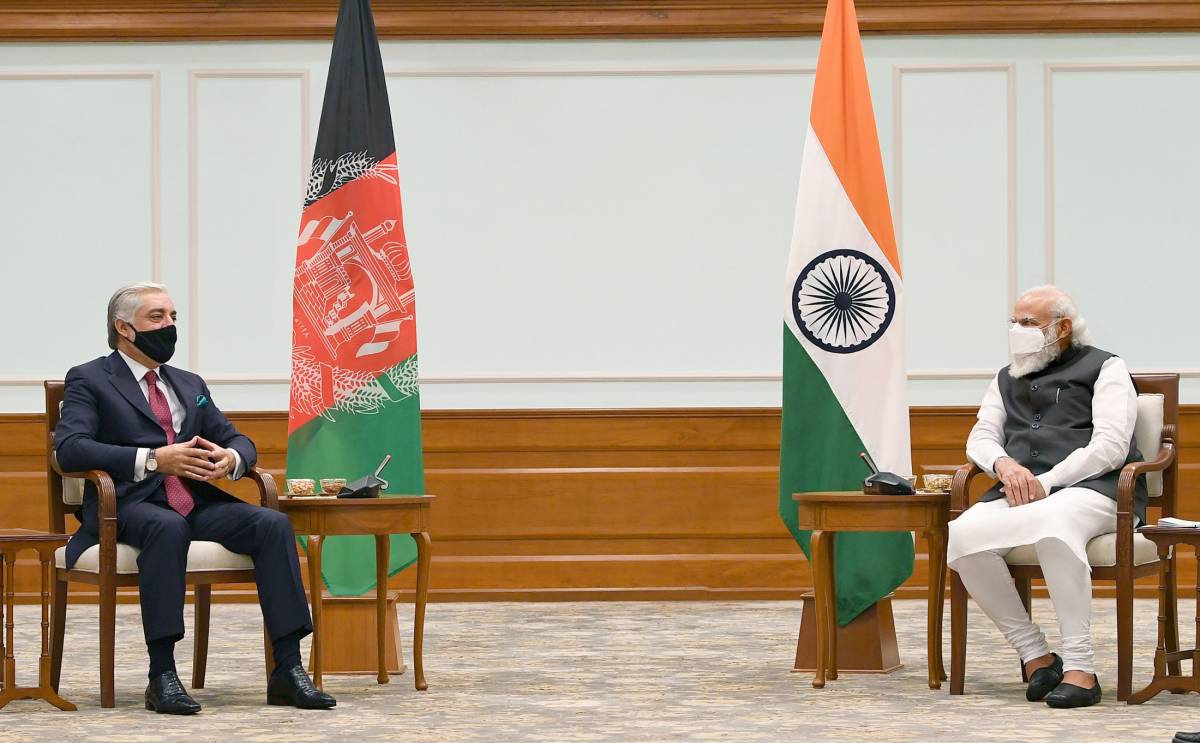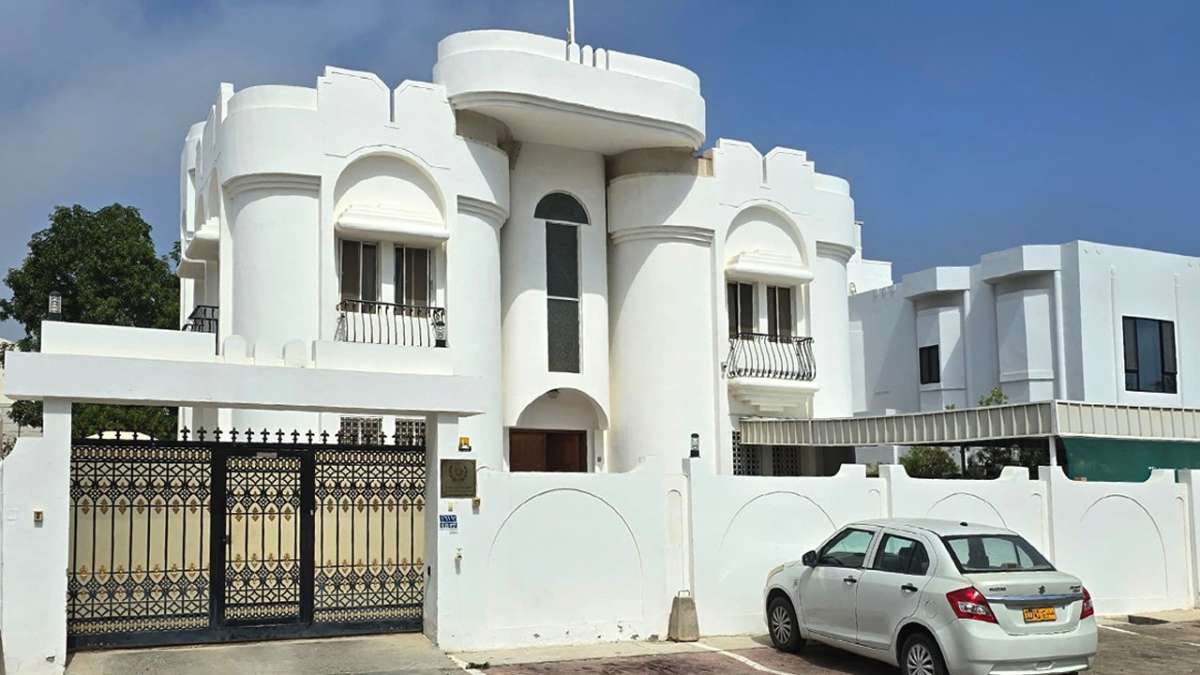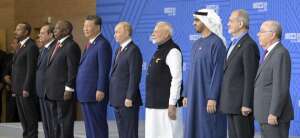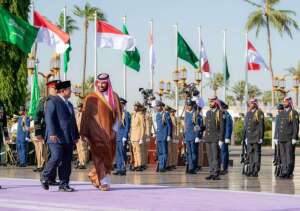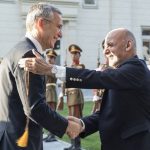As the Taliban become increasingly assertive in the ongoing peace talks and potentially set to govern the country again someday, it is vital that New Delhi carves a channel for diplomatic dealings, writes Hollie McKay
As the United States prepares to pull out the entirety of its remaining 2,500 troops from Afghanistan (Liptak, 2021) – a move fast being followed by NATO allies in the war-tattered nation (North Atlantic Treaty Organisation [NATO], 2021a, 2021b) – the onus for security and stability will fall on the regions neighbours.
However, this is a window of opportunity in which India can lead the way. It will not be an easy or simple process. As the Taliban become increasingly assertive in the ongoing peace talks and potentially set to govern the country again someday, it is vital that New Delhi carves a channel for diplomatic dealings.
So far there have been some evident efforts in that direction. Indian officials are taking an increasingly visible role in the various meetings concerning Afghanistan’s future, of which Taliban members have been party. New Delhi will attend the ten-day Istanbul conference starting this week (Aljazeera, 2021; Did Press Agency, 2021).
Of course, India’s history with the Taliban – for instance when it was poised at the Kabul helm from 1996 to 2001 – has been a turbulent one. This is not surprising given the Taliban’s protracted policy of directly and indirectly supporting Pakistani terrorist groups, a policy which has resulted among other things in various skirmishes in Jammu and Kashmir.
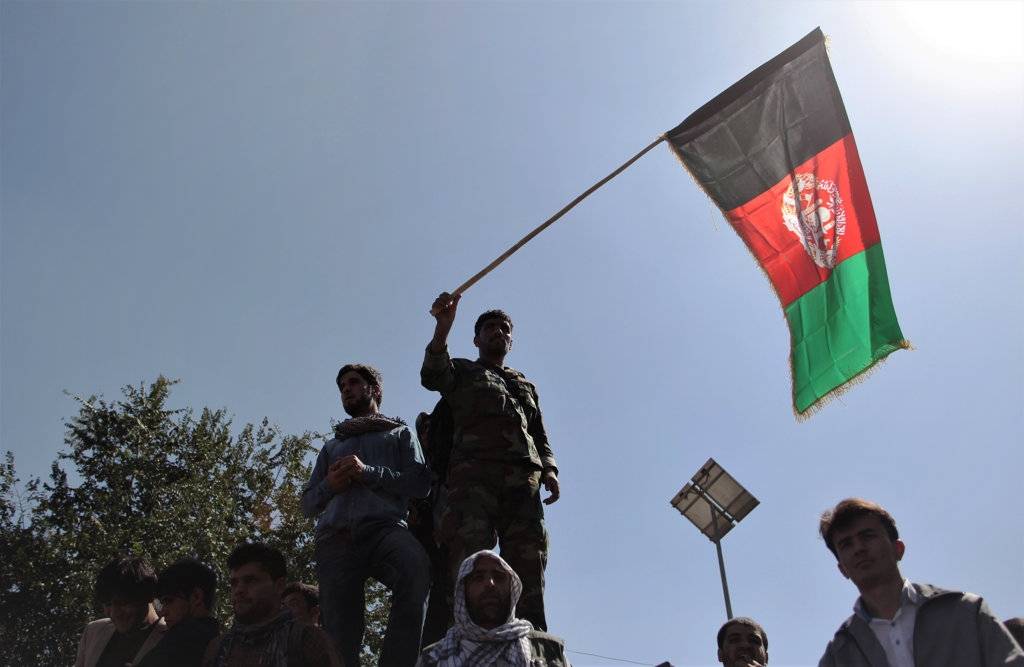
Moreover, it is hard to forget the painful hijacking of an Indian Airlines flight in 1999 by five Taliban gunmen, resulting in one passenger being fatally stabbed and 17 being wounded (Joshi, 2020). Allegations of involvement by the Pakistani ISI inflamed the aftermath.
And certainly, the Taliban’s perchance for violence and the ruthless targeting of both Afghan forces and civilians in recent years reminds all the sobering reality that their overarching tactical approach remains unchanged. Furthermore and of course, India’s leaders cannot enthusiastically align with a political faction that ideologically limits the education and vocational opportunities for women and endorses extremist values that amount to violence and terrorism.
The diplomatic dance with the Taliban must therefore be delicate, but not dismissive. Uncomfortable facts are facts nonetheless, and India will need to work with the reality on the ground if – or when – the Taliban resume a potent palace position.
On the plus side, the Taliban’s top brass has not – for some two decades – made explicit anti-New Delhi threats. They were swift to release, following quiet negotiations, the seven captured Indian engineers working in Afghanistan three years ago (The Economic Times, 2019).
The organisation has also refrained from sabotaging or attacking India-backed development projects in Afghanistan – all of which should be perceived as positive tools for the communications arsenal. The success in this area may have stemmed in large part from New Delhi’s non-militarized Afghan strategy.
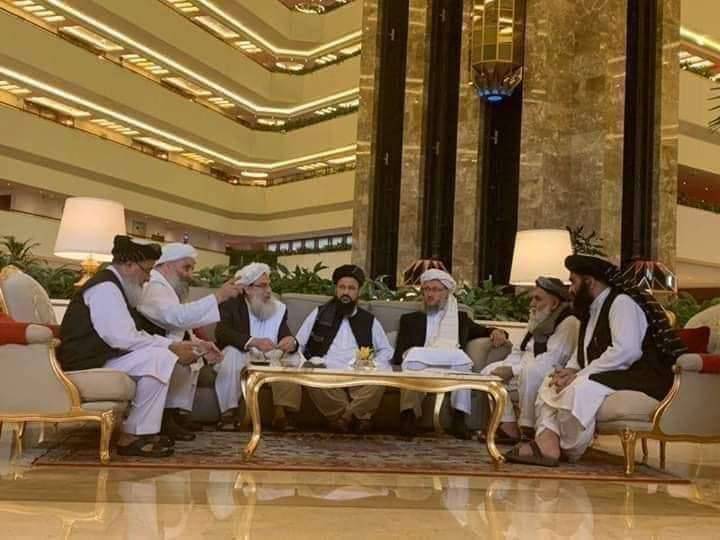
Rather than bolstering Kabul’s security endeavours with boots on the ground, India’s lawmakers instead opted for a “soft power” approach – focusing its support spending on economic and infrastructure projects, as well as community-centric development and humanitarian aid. The war-splattered nation is the second-largest beneficiary of Indian assistance (Vivek, 2017), shoring up a positive perception of India among much of the Afghan citizenry – a critical puzzle piece for future influence in the embattled nation.
Indeed, India has built up a robust portfolio of strategic interests in Afghanistan – despite its conflicts and volatility. A good example is the $100 million enlargement of the Chabahar port (Zee News, 2014) to serve as an import-export core between Central Asia and Afghanistan.
ALSO READ: US to monitor Afghanistan insurgents after troop pullout
By opting to play a more pervasive part in Afghanistan, India also stands to secure even closer strategic ties to the United States. Washington has vowed to maintain its diplomatic and humanitarian endeavours in Afghanistan after the military exit, and President Biden has expressed a desire to see neighbouring nations play more prominent roles.
US State Department spokesperson Ned Price announced this month that Secretary Antony Blinken and his Indian counterpart S. Jaishankar would work together in advocating Afghanistan cohesion. This of course constitutes the outgrowth of a long and trusting affinity (The Week, 2021).
India can also coordinate its strategy and act as something of an interlocutor for all countries directly impacted by security affairs in Afghanistan – China, Russia, Pakistan, Turkey, Qatar and beyond.
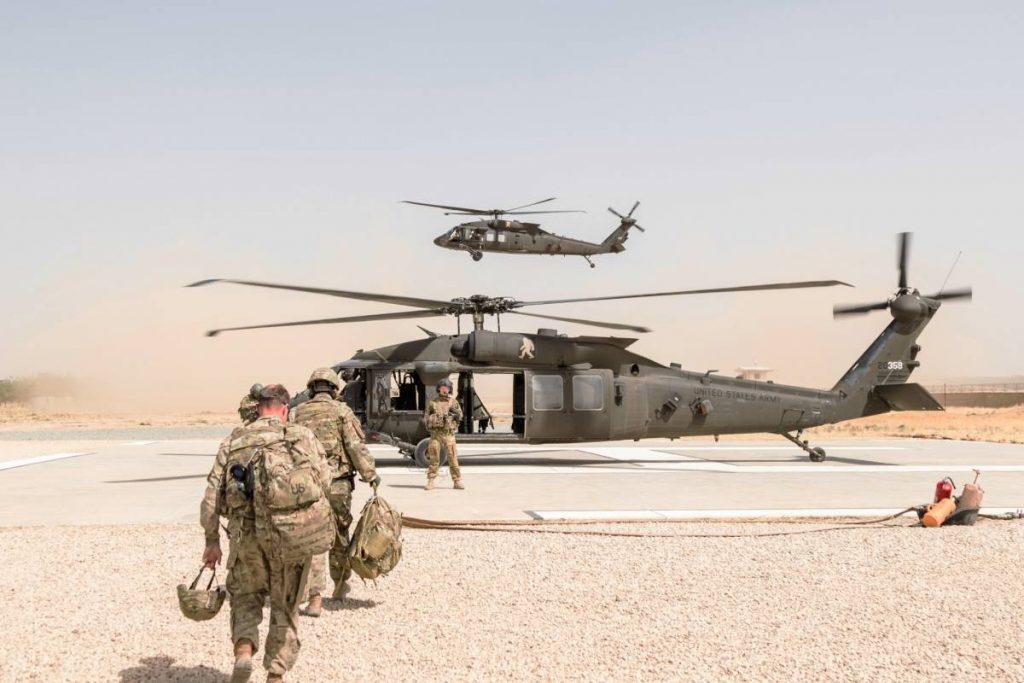
Moreover, the likes of ISIS-K, the Da’esh outfit operating on Afghan terrain, appears relatively small at this stage; there are an estimated 19 other terrorist outfits thought to have a footprint inside the country (Arian, 2017). The Taliban may, in the end, turn out to be a necessary bastion against groups that pose threats both within and outside of Afghanistan’s borders.
However, when assuming responsibilities, India must also be mindful of maintaining a healthy distance from Kabul’s internal security affairs – ramping up developmental support with the goal of long-term stability while giving space for Afghanistan to grow and take shape on its own.
And even though it remains to be seen whether the Taliban takes an increased focus on the contentious Kashmir issue, Suhail Shaheen – a representative for the Taliban’s political wing in Afghanistan – has previously taken to Twitter to espouse that in their policy it “is clear that it does not interfere in the internal affairs of other countries.” (Gupta, 2020)
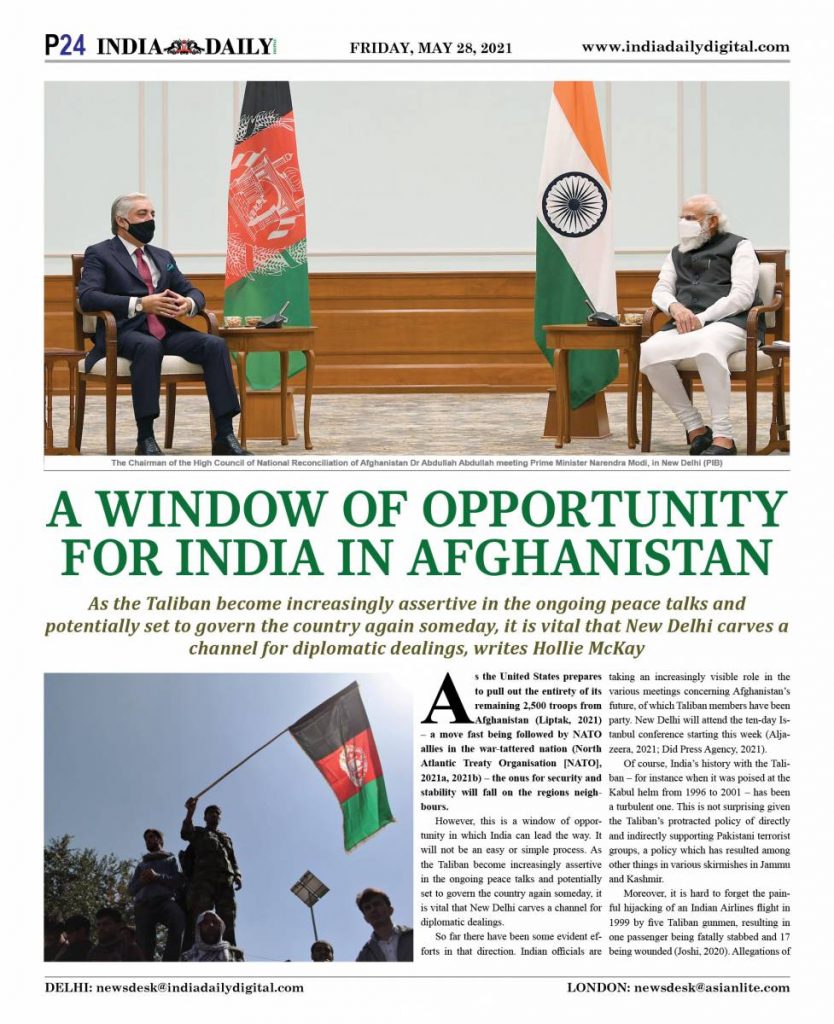
For its part, another spokesperson for the Taliban’s political wing – officially termed the Islamic Emirate – also pledged (Gupta 2021) this past week that its foreign policy would “seek positive relations with all its neighbours” on the basic principles of “respect and interaction” (Gupta, 2021).
“The Islamic Emirate does not allow anyone to use the soil of Afghanistan against another country, group or individual. It should also be made clear that the Islamic Emirate will never allow anyone to turn the soil of Afghanistan into an arena of proxy conflicts and disputes,” spokesperson Muhammad Naeem Wardak told CNN News18’s Manoj Gupta (Gupta, 2021), while also doubling down that they do not intend to interfere in any cross-border disputes, including those involving Pakistan.
“The Islamic Emirate of Afghanistan calls on all to assist the Afghan people in achieving independence and freedom, in the light of the values of the people, in the establishment of an independent Islamic system and the reconstruction of the country.”
Thus, while India cannot control who takes power in Kabul, it is in India’s best interests to keep the door open to whomever wins the stakes in the months and years to come. Keeping in mind the Taliban’s tenacity over the past two decades of US occupation, and the fact that it is a force which is here to stay.
(The writer a war crimes investigator and author of “Only Cry for the Living: Memos from Inside the ISIS Battlefield”. The view expressed are personal)
ALSO READ: Pak wants Afghanistan to break ties with India: Karzai

